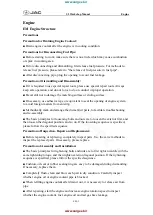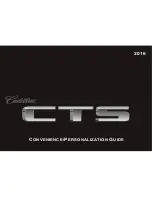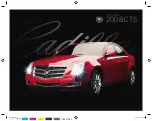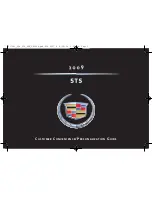
1999 S70 & V70
that, regardless of age and size, a child should always be properly restrained in a car.
Restraint systems for children are designed to be secured in the vehicle by lap belts or the lap portion of
a lap-shoulder belt. Such child restraint systems can help protect children in cars in the event of an
accident only if they are used properly. However, children could be endangered in a crash if the child
restraints are not properly secured in the vehicle. Failure to follow the installation instructions for your
child restraint can result in your child striking the vehicle's interior in a sudden stop.
Holding a child in your arms is NOT a suitable substitute for a child restraint system. In an accident, a
child held in a person's arms can be crushed between the vehicle's interior and an unrestrained person.
The child could also be injured bystriking the interior, or by being ejected from the vehicle during a
sudden maneuver or impact. The same can also happen if the infant or child rides unrestrained on the
seat. Other occupants should also be properly restrained to help reduce the chanceof injuries or
increasing the injury of a child.
All states and provinces have legislation governing how and where children should be carried in a car.
Find out the regulations existing in your state or province. Recent accident statistics have shown that
children are safer in rear seating positions than front seating positions when properly restrained. A child
restraint system can help protect a child in a vehicle. Here's what to look for when selecting a child
restraint system:
●
It should have a label certifying that it meets applicable Federal Motor Vehicle Safety Standards
(FMVSS 213) - or in Canada, CMVSS 213.
●
Make sure the child restraint system is approved for the child's height, weight and development - the
label required by the standard or regulation, or instructions for infant restraints, typically provide this
information.
●
In using any child restraint system, we urge you to look carefully over the instructions that are
provided with the restraint. Be sure you understand them and can use the device properly and safely in
this vehicle. A misused child restraint system can result in increased injuries for both the infant or child
and other occupants in the vehicle.
●
If your child restraint requires a top tether strap, consult your authorized Volvo retailer for top tether
anchorage and installation information.
When a child has outgrown the child safety seat, you should use the rear seat with the standard seat belt
fastened. The best way to help protect the child here is to place the child on a cushion so that the seat
belt is properly located on the hips (see page 10).
A specially designed and tested booster (not available in Canada) cushion for children between 22.7 - 36
kg (50 - 80 lbs) and 117 - 137 cm (46 - 54") can be obtained from your Volvo retailer.
If necessary, an auxiliary seat for children is available for use in the luggage compartment of station
wagon models. This seat is designed for two children, each weighing between 23 - 40 kg (50 - 88 lbs.)
file:///K|/ownersdocs/1999/1999_SV70/99sv70_008.htm (9 of 10)12/30/2006 3:36:47 PM
















































